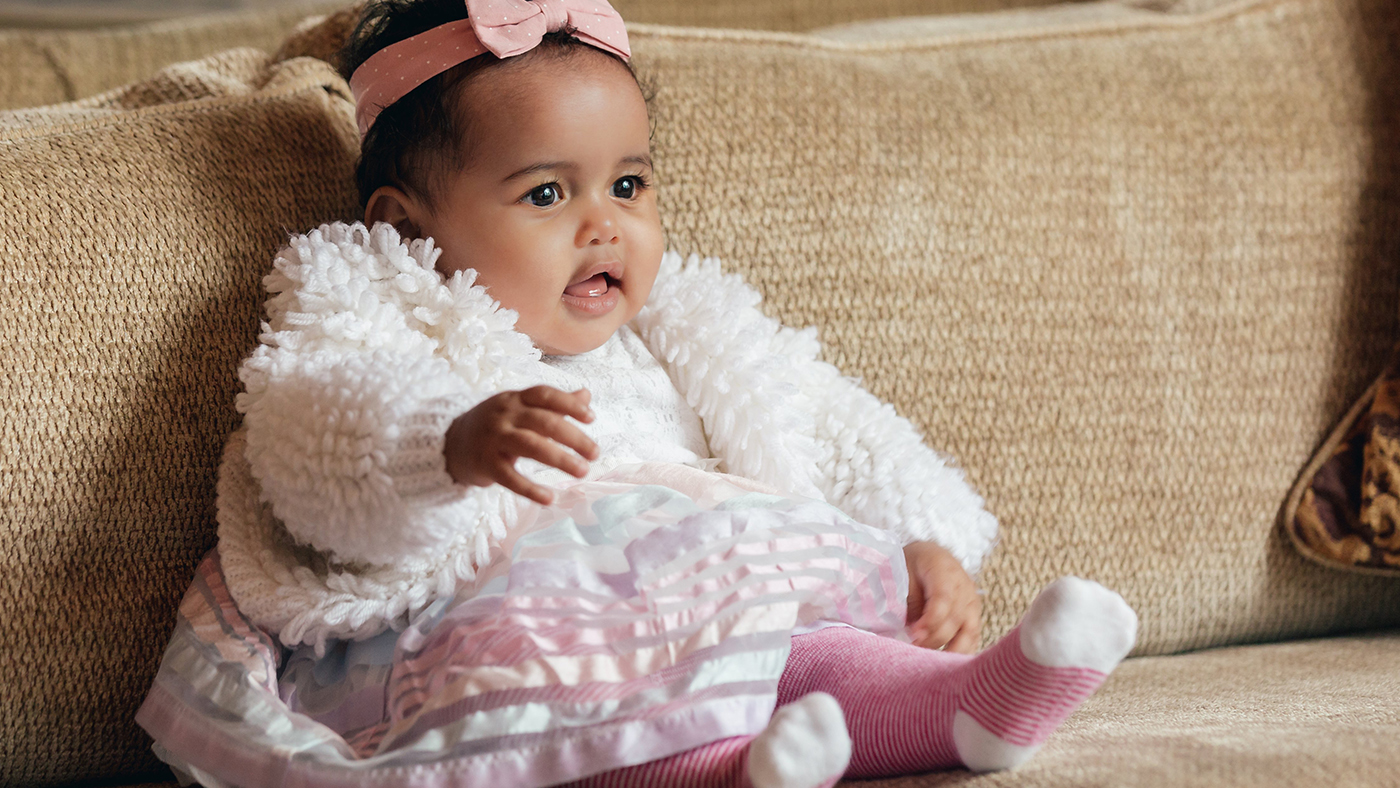Becomes upset when left alone and responds enthusiastically when you come back

Your baby is beginning to develop an awareness of themselves as a separate individual but remains dependent on others to meet their needs. As they develop this understanding of themselves, they will become more aware of when you leave and might become upset when you go away, or if you are out of sight for a few moments.
Attachment and separation
Theories about attachment were first developed by John Bowlby in the 1950s. Bowlby’s research focused on mothers and babies, and suggested that sensitive and responsive care from mothers was essential for secure attachment. Bowlby also suggested that this attachment with their main caregiver needed to be formed by the age of three in order for a child to grow up emotionally secure and resilient.[1] However, later studies have found that babies can have multiple attachment figures and the emphasis on a single attachment figure, usually the mother, has been questioned. Research has also shown, whilst early experiences are important secure attachments can be formed after the age of three. [2]
When your baby starts to notice you leave a room, they are demonstrating their growing secure attachment with you and an increased sense of self. Sometimes they might do this by crying. But, researchers have also found that some babies who seemed not to notice their caregiver leaving, had a physiological response. For example, their heart rate increased. Even if your baby does not seem to notice when you leave them, they might have a response to this separation that might not be as obvious. Experiences of separation and then return can help your baby to build trust and are part of them becoming aware of themselves as a separate individual.
Leaving your baby
If your baby becomes upset when you need to leave them, you might find this a difficult and emotional parenting challenge. However, it is an important part of their development.
You can support your baby when you leave them by:
- Always saying goodbye when you leave, this helps your baby to trust you.
- Thinking about who you leave them with. Babies can form attachments with multiple people and what is important is that the people looking after them are sensitive and responsive to their needs.
- Making ‘mind-minded’ comments, this might feel strange when talking to your baby, but research suggests that babies whose parents make these comments tend to be more securely attached. A ‘mind-minded’ comment is a comment about what your baby is likely to be thinking and feeling. When you leave, or when you return you might say, “You are sad that Mummy has to go now,” or “You missed Daddy didn’t you.” [2]
What next
Your baby will continue to develop their self-awareness and their relationships with the people who look after them. They will look towards their caregivers when in new situations for reassurance before they move away to explore. You can continue to support your baby as they develop their self-awareness by thinking about your body language and tone in new situations, you can offer reassurance through being calm and present. Acknowledging your baby’s feelings and commenting on these will continue to support them to develop their confidence as they become more aware of their emotions. You might also find that they gain support from a ‘transitional object’ such as a favourite blanket or toy as they experience new situations.
References
[1] Burman, E. (2017) Deconstructing Developmental Psychology. (3rd edn.) London: Routledge.
[2] Musci, G. (2011) Nurturing Natures: Attachment and children’s emotional, sociocultural, and brain development.